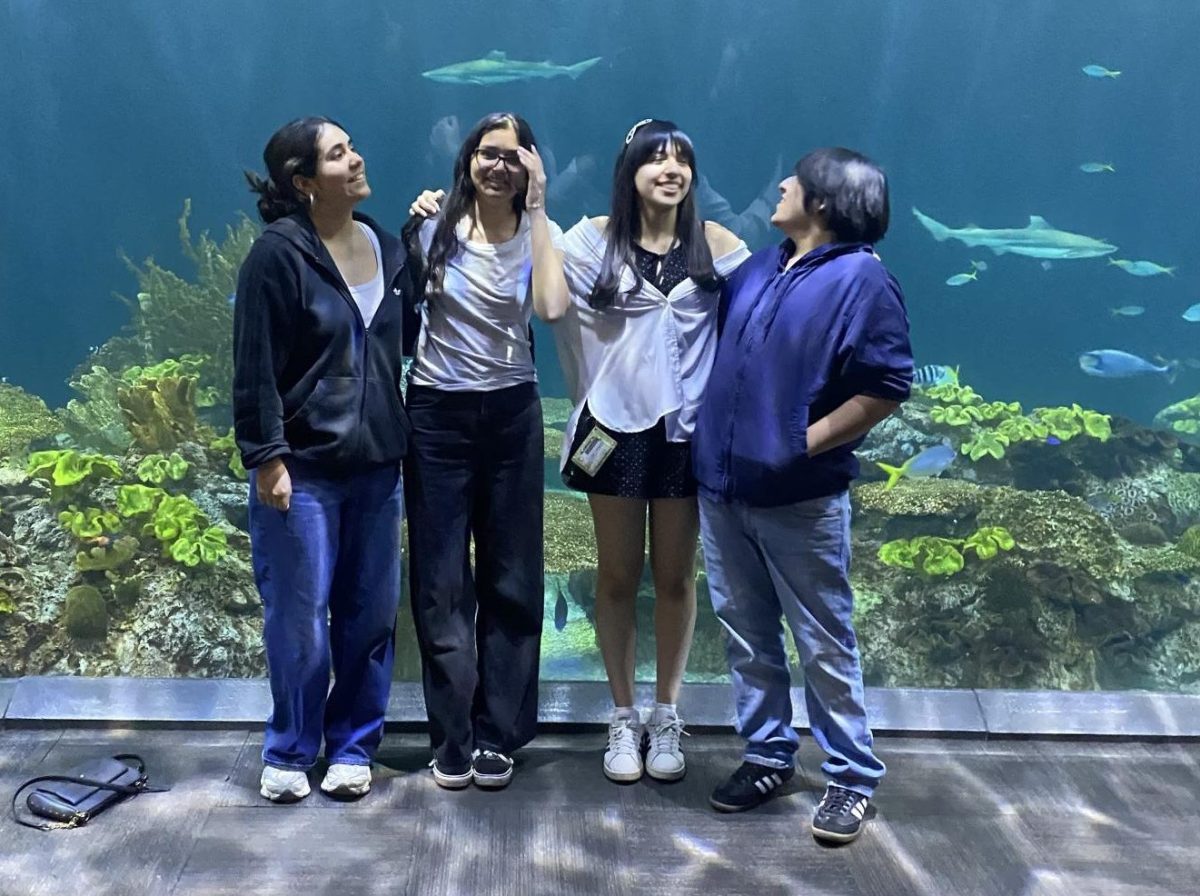Gringo or Gringa is a term in Spanish used to describe a white foreigner.
Born in America to Mexican immigrant parents, at a young age, I was made aware of the dissonance between Mexicans and Americans. When starting school in a predominantly white area, this noun exemplified an us vs. them mentality, drawing a border between my white peers and my Latino friends at school.
My community of Latino friends was the only sense of familiarity outside of my family that I knew in my predominantly white school. They reflected similar beliefs and upbringings to me.
However, like many pre-teens, my friends began to change at the beginning of middle school.
Initially, some of my friends began to make risky choices including skipping classes.
But I couldn’t join them. Not only was my family protective and able to foresee the dangerous outcomes of peer pressure, but I was also starting to prioritize my education.
As part of being first generation, my family encouraged me to take advantage of the resources the U.S. education system has provided me with and change the world through my passions. I strove to demonstrate to mi gente, my Latino community, that we can thrive in the USA. To dispute the shadowing stereotypes and redefine the labels for our future generations.
Yet, when I tried explaining this to my friends, their gazes turned into the same foreign look they gave to those outside of my Latino community. I felt like they began looking at me like a gringa.
But it was their words that caught me off guard, and truly crushed my hopes when I tried to express that we don’t have to conform to those stereotypes imposed on them by society. However, at the moment they may not have felt empowered to change those.
Reflecting on it now, we were all young children at the time, still navigating our identities. It didn’t help that society was starting to influence us into our labeled stereotypes, including me. I naively thought that with enough effort to act more “like them” and accept my Latina stereotype, their gazes would return to familiarity.
I wanted them to accept me, but they knew I wasn’t being my genuine self. I was teased for my personality, hobbies, and behaviors in school because it differed from theirs. I believe this mindset and behavior may have stemmed from the influence of societal pressures, not because it truly reflected who they are.
Yet, it still baffled me at the time how my characteristics were used to define me as a gringa, despite having no relevance to my cultural background. I felt as if my friends were generalizing individual personality traits into a cultural stereotype when, in fact, I would have wished they saw the importance of recognizing and valuing diversity of personal characteristics within any cultural context. Ultimately, it left me feeling stifled and outcasted.
It wasn’t until the pandemic that I became isolated by banal walls, feeling as blank as them. I had been attempting to act like someone else, which burdened me and left me idle.
After spending most of my quarantine self-reflecting, I found myself with a newfound courage. I gathered the confidence to finally reclaim the hopes that brought me a sense of determination and drive. I comprehended that embracing my true self and passions was more essential than complying with societal labels. As I began high school, I concentrated on what I enjoyed and who I aspired to be, escaping the demanding pressures of being dubbed a gringa.
I have been fortunate to meet a new community of Latinos at VHHS, one that resonated with my experience. It showed me that not all Latinos should shadow the stereotypes society pressures upon us. Through this community and growth, I learned that one should take pride in their cultural identity without feeling constrained by societal expectations.
For me, no longer burdened by the need to exemplify to others that I wasn’t a gringa, I found freedom in embracing my true self and pursuing my passions. Today, I stand tall, knowing that my heritage is just one facet of the multifaceted individual that I am and that being Latina is something to celebrate, not diminish.

